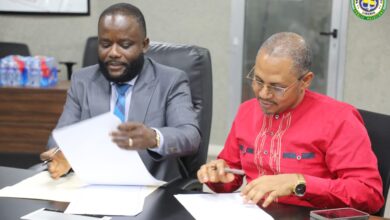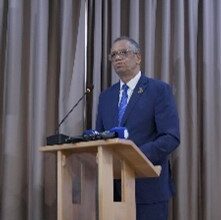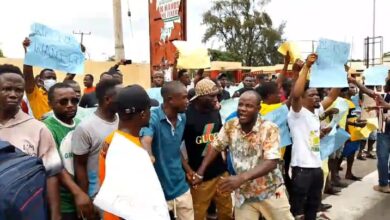Article: Liberia Failing Leadership

By: Faulkner Zennah,
Liberia, a nation steeped in history and endowed with abundant natural resources, remains one of the poorest countries in the world. Despite its vast potential, the country is plagued by economic stagnation, rampant corruption, inadequate infrastructure, and a deeply disillusioned population. At the heart of these challenges lies a critical issue: the persistent election of inept and self-serving leaders. This cycle of poor governance is not only eroding Liberia’s progress but also undermining the trust of its citizens in the democratic process.
The Legacy of Leadership Failures
Since its founding in 1847, Liberia has endured a tumultuous political history marked by instability and mismanagement. From the autocratic tendencies of the Americo-Liberian elite in the early years to the brutal civil wars of the late 20th century, the nation has struggled to establish a stable and effective leadership structure. Post-war Liberia has seen democratically elected governments, yet many of these leaders have failed to prioritize national development, opting instead to enrich themselves and their inner circles.
Corruption has become the hallmark of Liberian politics. Leaders often campaign on promises of reform, transparency, and development, only to perpetuate the very practices they vowed to eliminate. This betrayal has fostered widespread apathy among voters, who feel trapped in a cycle of exploitation and broken promises.
The Role of the Electorate
While it is easy to place the blame solely on politicians, the electorate also bears significant responsibility. Liberians have repeatedly elected individuals who lack the vision, competence, and integrity required to lead effectively. This pattern can be attributed to several factors:
- Tribalism and Patronage: Many voters prioritize ethnic and tribal affiliations over merit and qualifications. Politicians exploit these loyalties to secure votes, often at the expense of national unity and progress.
- Poverty and Short-Term Gains: In a nation where a significant portion of the population lives below the poverty line, voters are easily swayed by handouts and promises of immediate benefits. This short-term thinking undermines the country’s long-term development.
- Lack of Political Education: A poorly informed electorate is more likely to fall victim to populist rhetoric and empty promises. Civic education is crucial in empowering citizens to make informed choices at the ballot box.
Consequences of Poor Leadership
The repercussions of electing the wrong leaders are painfully evident in Liberia. Public services such as healthcare, education, and transportation are grossly inadequate. Unemployment remains alarmingly high, particularly among the youth, leading to frustration and social unrest. Corruption siphons off resources that could be invested in critical infrastructure and development projects. Moreover, the lack of accountability perpetuates a culture of impunity, where leaders act with little regard for the well-being of their constituents.
Liberia’s international reputation has also suffered. The instability and corruption that characterize the country’s political environment deter foreign investors, further exacerbates economic challenges, and limits opportunities for growth and development.
Breaking the Cycle
To reverse this downward trajectory, Liberia must address the root causes of its leadership failures. This requires a collective effort from both leaders and citizens:
- Invest in Civic Education: Comprehensive voter education programs can help citizens understand the importance of electing competent and ethical leaders. An informed electorate is better equipped to hold politicians accountable.
- Strengthen Institutions: Robust democratic institutions are essential to curbing corruption and ensuring transparency. Electoral reforms, an independent judiciary, and empowered anti-corruption agencies can create a more accountable political system.
- Promote Meritocracy: Liberians must move beyond tribal and partisan politics to prioritize merit, competence, and integrity in leadership. Civil society organizations and the media can play a vital role in highlighting candidates’ track records.
- Engage the Youth: With a large percentage of Liberia’s population being young, it is crucial to involve them in the political process. Youth-led initiatives and leadership training programs can cultivate a new generation of visionary leaders.
Liberia’s failure to realize its potential is not a foregone conclusion. The nation has the resources, talent, and resilience to chart a new course toward prosperity. However, this requires a fundamental shift in how leaders are chosen and how they govern. Electing the worst to lead is a choice that Liberians can no longer afford to make. By prioritizing integrity, competence, and a shared vision for the future, Liberia can break free from the cycle of poor leadership and build a brighter tomorrow for all its citizens.



















